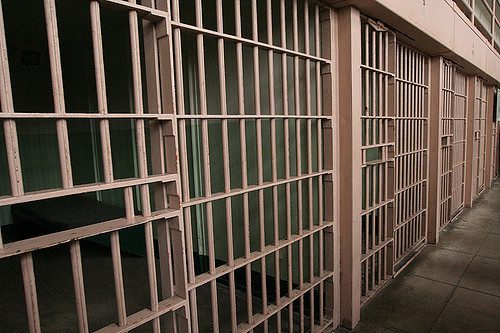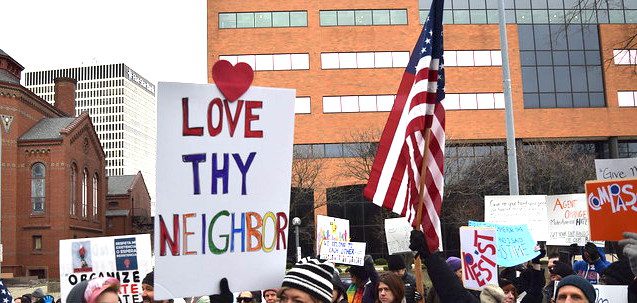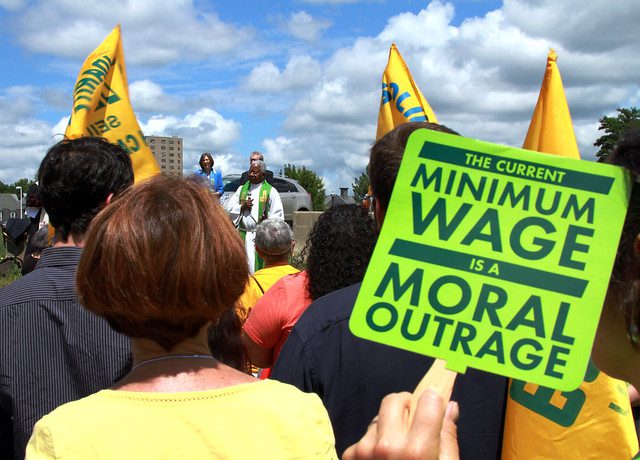
Photo by Jenn Vargas via flickr, CC BY-NC-ND 2.0
Inmates across the country are participating in a prison strike to protest the exploitation of their labor, especially by private companies, calling it modern-day slavery. They are also calling for a number of other changes, including voting rights, and more funding for rehabilitation programs. Decent wages for inmate labor would shift the balance of power for labor in general, and it would also have a substantial effect on the communities from which such a large percentage of incarcerated workers are taken, which is, not so incidentally, often where community developers are working.
HUD has launched a campaign to increase landlords’ acceptance of Housing Choice Vouchers (HCV). Jumping off of two studies showing just how few landlords accept the vouchers, the agency will host a listening tour to figure out how to make the program more landlord friendly. “While many landlords liked the program’s reliable rent payments, the main reasons given for not participating in the HCV program were frustrations with required inspections and disappointment with how local housing authorities handle disputes with tenants,” HUD’s press release reads. (Note: main reason given does not necessarily equal main real reason.) Now, reducing administrative hassles—and there probably are some—such that more landlords participate could be a win-win for all. But given the current administration’s antipathy toward regulation of any sort and the language they are using here, we’re a little afraid that this is headed toward inspection standards so weak they open the doors for a flood of slumlords collecting government money to provide unacceptable, unhealthy living conditions and a dispute process as tilted against tenants just as housing court is. At the very least, if the program is made more landlord friendly, we’d like to see that paired with strong, enforceable source-of-income protections.
In the next decade, Baltimore could rehabilitate and preserve more than 4,100 affordable housing units after city officials finally committed to fund an affordable housing trust at the tune of $20 million. The decision came two years after the city’s voters approved the trust’s creation. (For more on Baltimore, check out this piece about the housing movement in the city.)
Listen to the workers and patients—In a great story about the power of listening to the people affected, a community health project in Houston hired nail salon workers as part of project to figure out the causes of their persistent work-related health issues and craft ways to address them. “The Houston nail salon workers decided that the best solution would be to integrate specific health education into nail salon schools,” covering things like mask use and selecting less toxic products. This sounds great, but it does seem to side-step the question of power and employer accountability—how many of these choices are within the individual workers’ control, and how many will get circumvented by salon owners? Here’s hoping that if that comes up, similar community health resources will be put into supporting the workers with organizing and advocacy, not just education.
How many times have we heard this misconception: immigrants are moochers who are responsible for high health care costs because they’re taking resources that belong folks born in the U.S.? Well we have an interesting piece for you that proves otherwise. Research shows that immigrants are actually subsidizing U.S. health care. “Our data are very clear that the more immigrants we have in any insurance pool, the healthier that insurance pool will be financially.” Share this story far and wide.
A payday loan alternative—In an era of gig employment, unpredictable work hours, and many people living on the edge of enough income, people who study financial well-being have identified that along with income and assets, cash flow forms the third leg of stable household finances. Getting stuck in a cycle of repeat payday loans, with their exorbitant interest rates, are a common result of a cash flow problem. One way some employers are trying to help out is by the use of an app called PayActiv that allow their workers to access money they have already earned but have not yet been paid, for a flat $5 fee (some employers pay the fee). This is a definite good thing. Now, if only participating employers like Walmart would also pay a living wage so their employees wouldn’t need this so often, we’d be headed in a good direction.
So folks, when you displace a bunch of people in a overheated market with a questionable highway expansion, the least you can do is commit significant funding to affordable housing. Too often that doesn’t happen, so good on Colorado DOT for doing it.
Speaking of the destructive influences of highways, something interesting happened when the residents of a New Orleans neighborhood that had seen their commercial district destroyed and neighborhood divided by an elevated highway were asked about taking it down. They said they didn’t want it down. It wouldn’t bring back what they lost, they said, but would probably bring gentrification and displacement. Meanwhile, residents have reclaimed the space under the road for social gatherings, art, and commerce. A great example of why community feedback should not be considered a rubber stamp.
What We’re Reading
What a Bipartisan Push Against Exclusionary Zoning Looks Like, Citylab
Planning, Placemaking, and the Public Good, Planetizen
Why Proven Solutions Struggle to Scale Up, Stanford Social Innovation Review
Closing the New Affordable Housing Gaps, The American Prospect





Comments